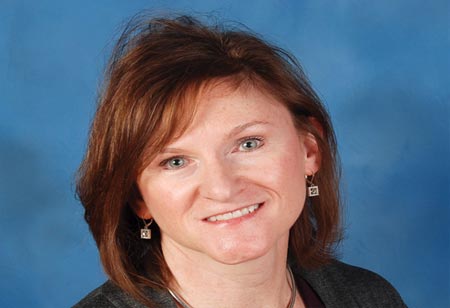

Thank you for Subscribing to Cannabis Business Insights Weekly Brief

Bay State Milling is in the business of creating a better food system from the ground up. We mill agricultural crops to create food ingredients, including wheat, oats, chickpeas, millet and many more. Some call these “commodity” ingredients, but our approach has always been a little bit different, creating value and differentiation up and down the value chain for as many participants as possible.
While Bay State Milling is a purchaser of agricultural crops, we prefer to think of ourselves as partners. Without farmers (and all who support them), we would not have the inputs to create ingredients and without processors, farmers would not be able to reach the hearts and mouths of consumers across North America. This symbiotic relationship has grown in importance as plant-based diets have gained popularity and consumers have the desire, and the tools, to know where their food comes from and how it is managed from field to fork. This availability of information has created new opportunities and challenges for food value chain participants as consumers question the impact of foods and ingredients on their health and wellness.
Bay State Milling has always believed that “change cultivates opportunity.” This increase in the availability of information, whether accurate or not, has driven changes in consumer behavior — specifically, a reduction in wheat consumption due to fear of “empty” carbohydrates. Yet we believed there was a way to bring a better wheat to market that provides the nutrients consumers need while delivering the great taste they love from refined wheat flour foods (such as white bread, pasta, pizza, etc).
For the wheat growers who may be reading this, you know that wheat has been traditionally grown and transacted based on protein content. This is because protein content is highly correlated to how well wheat performs for bakers and pasta manufacturers, not necessarily for nutritional value. While protein content is a big driver of many food purchases today, a nutrient that is critically important and sorely lacking in our diets is fiber. Only 5% of Americans come close to consuming the 30 grams per day of fiber recommended for a healthy diet.
Being in the specialty wheat business for decades, Bay State Milling has a strong network of growers who have worked with us to produce organic wheat, spelt and new rotation crops
There is a long story and many years behind the work required to deliver such a product, which we don’t have space to get into here. However, the mission was accomplished through a non-GMO variety of spring wheat with a unique combination of starches in the endosperm that contribute ten-fold the amount of dietary fiber found in common wheat and refined white flour. This wheat is called high-amylose wheat, and its creation was a tremendous milestone in transforming wheat, but the agricultural partnership story begins here.
High-amylose wheat was discovered using traditional breeding techniques which resulted in a few pounds of seed. It was discovered in partnership with wheat experts overseas and brought to the U.S. for Bay State Milling to cultivate for milling into a premium flour we branded HealthSense® High Fiber Wheat Flour. This required a well-thought-out plan and willing partners to scale this new seed in a new geography and to create a breakthrough wheat category that can improve public health. Any farmer who has changed crop varieties from year to year understands this is no easy task and takes time to adapt the seed to new conditions and deliver the yield and economic performance desired.
Having been in the specialty wheat business for decades, Bay State Milling has a strong network of growers who have worked with us to produce organic wheat, spelt and new rotation crops. We tapped into this network to select growers for this new wheat variety, appealing to their desire to be part of a movement towards better health through agriculture and their ability to embrace change while managing risk. Understanding there was financial risk involved in growing an untested variety, we worked with each grower to align on allowed inputs, as well as seed and grain requirements, balanced with price premiums to ensure they were well compensated for partnering with us on this important mission.
Because of the unique nature of high-amylose wheat, we also required Identity Preservation of the seed and grain from harvest through transportation to our mills. We collaborated with country Co-Ops to manage this for us, providing storage, testing and transportation services to our mills where we are assured delivery of pure high-fiber wheat to deliver maximum fiber benefits to our high-fiber flour customers.
Bay State Milling is committed to delivering better health through agriculture and HealthSense® High Fiber Wheat Flour is just one example of the power of many resources throughout the agricultural value chain that can contribute to tremendous change in human health. We are grateful to the partners who embraced the opportunity to share in the risk and reward of bringing a transformational wheat-based ingredient to the North American market.
I agree We use cookies on this website to enhance your user experience. By clicking any link on this page you are giving your consent for us to set cookies. More info

However, if you would like to share the information in this article, you may use the link below:
https://www.cannabisbusinessinsightsapac.com/cxoinsight/colleen-m-zammer-nwid-418.html